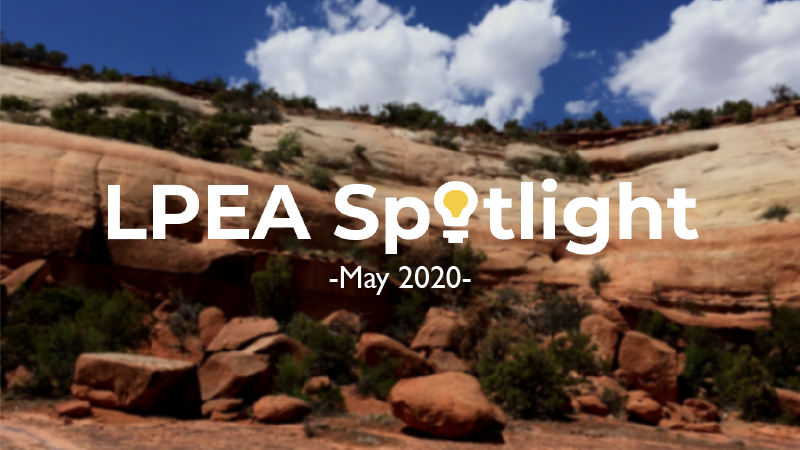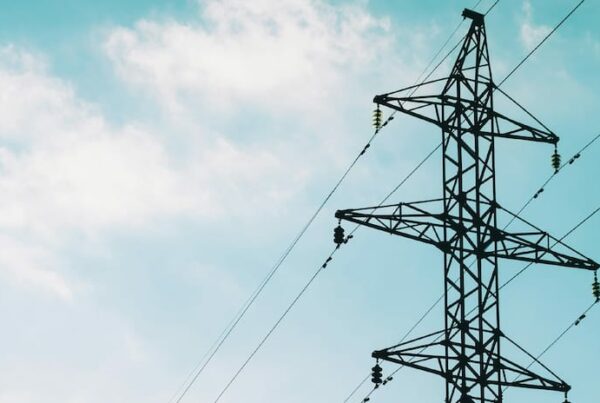This blog series covers the monthly La Plata Electric Association (LPEA) Board of Directors meetings. We’re tracking the board for transparency and accountability, as well as to stay current on their renewable energy initiatives. Find past and future spotlights here.
Get LPEA Spotlight in your inbox!
[button color=”extra-color-1″ hover_text_color_override=”#fff” size=”large” url=”#connect_open” text=”SUBSCRIBE” color_override=”#a1d078″]
Whew! We took a quick break from the Spotlight, and since we’ve been gone a ton has happened, both here in Southwest Colorado and across the state. This Spotlight will recap the biggest news that’s happened in the last few months:
1. FERC Rules on Tri-State Application
Remember Tri-State’s never-ending quest for federal regulation (link)? Well, the Federal Energy Regulatory Commission (FERC) finally made a ruling on Tri-State’s application. Though Tri-State put out a blatantly biased press release proclaiming that the ruling was decidedly in their favor, the truth is more nuanced:
The Bad News:
- FERC found that they have jurisdiction, for now, over Tri-State.
The Good News:
- Even though FERC found that they have jurisdiction over Tri-State, that jurisdiction is not exclusive. This means that the agency is not the sole and exclusive regulator for determining exit fees, like Tri-State wanted
- The ruling also states that if Tri-State didn’t properly admit the new non-cooperative members, FERC will reconsider whether they have jurisdiction.
- FERC also ruled that LPEA and United Power’s complaints at the Colorado Public Utilities Commission (PUC) are not pre-empted!
Speaking of that PUC case…
2. LPEA and United Power present their arguments at the PUC
Both LPEA and United Power (based outside Denver) have complaints at the PUC asking the regulatory agency to step in and establish a just, reasonable exit charge- since Tri-State won’t do it.
Part of LPEA’s three-pronged strategy to find the most affordable, responsible power is to research the cost of an exit from Tri-State. But without a buyout estimate, LPEA’s hands are tied- they can’t make the best decision for members without this crucial piece of information.
LPEA’s filing is a worthwhile read in and of itself, if only for its choice language, but a few highlights include:
1. Evidence that Tri-State is a terrible partner
LPEA’s documents show that Tri-State consistently acts only to advance its own self-interests, and simply does not care about working with its member co-ops. For example, LPEA contends that Tri-State’s refusal to issue an exit charge is a tactical decision, and instead of putting forth an exit methodology they “chose to pursue a tactic of federal preemption” (p1).
The filing continues: “This tactic is underscored by substantial evidence—including Tri-State’s delays, refusal to engage, “indicative” exit charges (indicative of very little), “sticker prices,” and one-off negotiated exit charges for Kit Carson Electric Cooperative (Kit Carson) and Delta-Montrose Electric Association (DMEA). It all amounts to a pattern of unjust, unreasonable, and discriminatory conduct by a public utility.”
(For more on Tri-State’s uncooperative policies and generally nefarious business strategies, check out United Power’s filing to sue Tri-State in Adams County Court and LPEA’s complaint at FERC. Both filings contain pointed language and illuminating insights on Tri-State’s punitive methodology for handling co-op buyouts.)
2. Insight on LPEA’s buyout number
Since Tri-State has done nothing but dig in their heels, LPEA and United Power each hired their own experts to calculate their buyout numbers. LPEA’s expert calculated an exit fee between $96.990 million and $112.836 million, depending on what’s included. Using United Power’s exit methodology, LPEA’s exit number is a bit higher, between $154.103 and $202.445 million (see LPEA’s filing, pages 15-18).
Whichever exit methodology is used, the bottom line is that LPEA would save between 10 and 20 million dollars a year by exiting our contract from Tri-State and buying power elsewhere.
Predictably, Tri-State contends that LPEA and United Power’s numbers are illegitimate since they don’t acknowledge and give value to their long-term obligations to buy from Tri-State. But, Tri-State itself doesn’t even attempt to give a valuation to that issue, since they didn’t present any methodology or numbers.
This is HUGE news. Using information from LPEA’s consultants and experts, exiting our contract would save members millions of dollars while increasing local control and opportunities for renewable energy.
Tri-State’s obstinance on this issue is telling- they know we can get cheaper, cleaner power elsewhere. Now, it’s critical that the PUC weighs in and ensures that the exit charge is fair, both for LPEA and other Tri-State members.
3. Upcoming PUC Rulemaking
The Public Utilities Commission (PUC) finalized its rules for Tri-State’s Electric Resource Plan (ERP). The ERP will occur in two phases, one starting now and the second beginning at the end of 2020. On June 1st, Tri-State will submit its ERP on existing resources, and then by December 1st will submit its full ERP (including both future plans and future assets). The first phase of the process will deal with Tri-State’s initial draft ERP, and will have ample opportunities for public participation.
What’s in the ERP?
- Tri-State will have to address carbon dioxide emission reduction of 80% from 2005 levels by 2030 with specific scenarios for how costs and benefits relate to the retirement of its existing resource and plans for new resources
- Tri-State must provide one base and one proposed alternative resource portfolio with calculations of the social cost of carbon for both existing resources and planned future resources. In phase one, Tri-State will suggest various social costs of carbon, and the PUC will determine the specific social cost of carbon to be used in Phase II for future asset plans
- Finally, Tri-State must provide a benchmark comparison of its existing resources against alternative resources (like more renewables) in the market
Tri-State’s ERP fundamentally impacts LPEA and customers like you. If we want affordable, sustainable energy here in Southwest Colorado we need everyone’s voice to be heard during this process. Public comment will be coming quickly after Tri-State’s first phase has been submitted- stay tuned for how you can get involved!
UPCOMING MEETINGS:
Next LPEA Meetings:
July Board Meeting: Wednesday July 15th at LPEA Headquarters. Public comment is at 9am.
Call or email your LPEA Board Directors.
(Hover over your neighborhood for contact information!)



